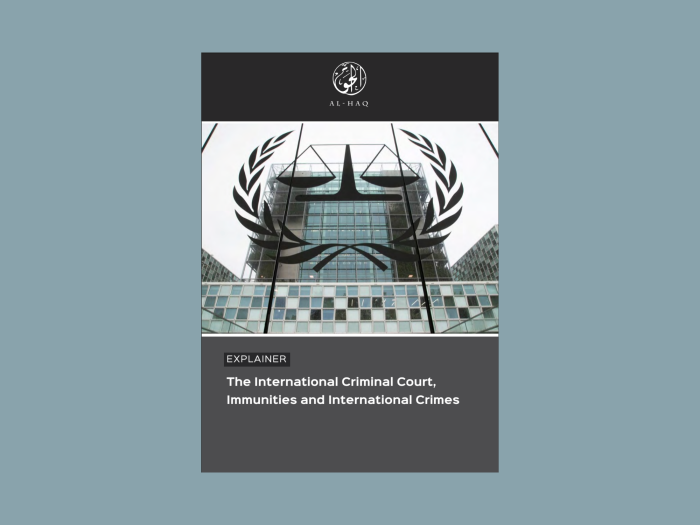
While stemming from the international law principle of sovereign equality between States, immunities for international crimes only serve to further entrench historically unequal State positions. Nowhere is this more evident than in Palestine. With arrest warrants issued by the International Criminal Court (ICC) for Prime Minister Netanyahu and former Minister of Defence Gallant for crimes committed in the context of its unlawful occupation, apartheid and genocide against the Palestinian people, recognising the immunity of state officials would not only go against international law – it would ensure a dispossessed, oppressed population living under a settler-colonial, apartheid regime is forcibly displaced and destroyed completely.
This Explainer serves to provide both clarity and guidance on an area of international law that is too often invoked to serve States’ geopolitical, economic interests, rather than the harmed population. While many refer to the law on immunities as an unsettled area, allowing for varied interpretations in the face of political and international pressure to uphold key legal instruments, the status of immunities – especially from prosecution for international crimes – is generally settled. It has been rejected by the Allied Powers in the establishment of the Nuremberg Tribunal and again declared inapplicable in the Convention on the Prevention and Punishment of the Crime of Genocide of 1948. Official capacity as a ground for immunity from prosecution was similarly not included in the statutes mandated by the UN Security Council to establish the ad hoc international criminal tribunals for the Former Yugoslavia and for Rwanda, nor was it included in the Rome Statute establishing the ICC.
The ability to invoke immunity after perpetrating mass atrocity international crimes represents an obvious and intolerable obstacle to the prevention and deterrence of international crimes. Al-Haq’s Explainer hopes to tackle this critical barrier to international criminal justice. It begins by outlining the legal framework governing immunities and examining how these rules have been interpreted and applied in practice, offering a concise overview of the current state of the law. The analysis then turns to the ongoing work of the International Law Commission, highlighting States’ divergent positions on the draft articles and their scope of applicability and the general consensus regarding Head of State of immunity as it applies to international crimes. With this broader context established, the focus shifts to the question of State official immunity before the ICC, through a detailed analysis of the Rome Statute and relevant case law. The Explainer closes by exposing the glaring double standards exhibited by certain States, highlighting the unmistakable political undercurrents that influence immunity claims for international crimes - particularly in efforts to hold perpetrators accountable in the ICC’s investigation into the Situation in the State of Palestine.

